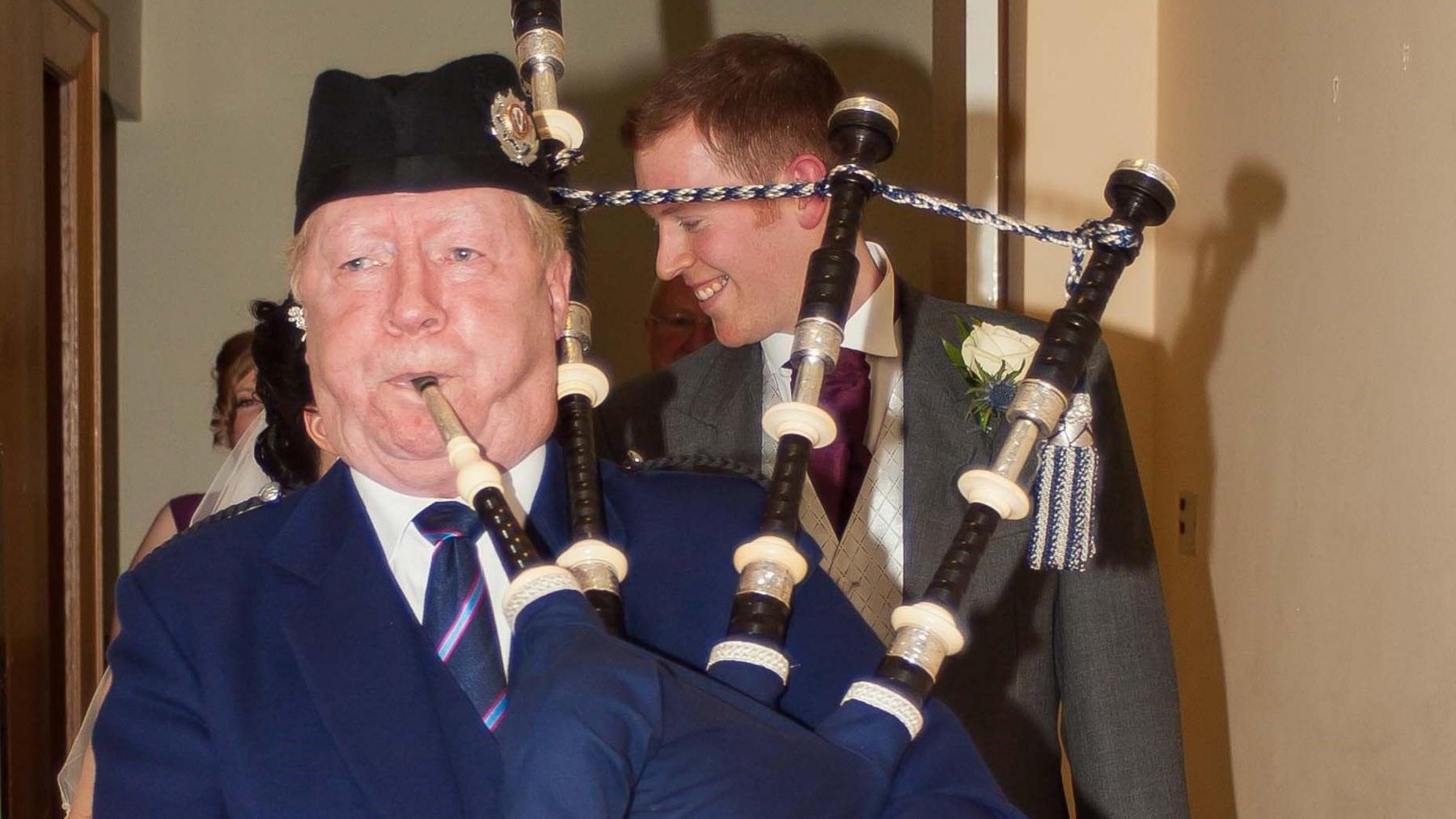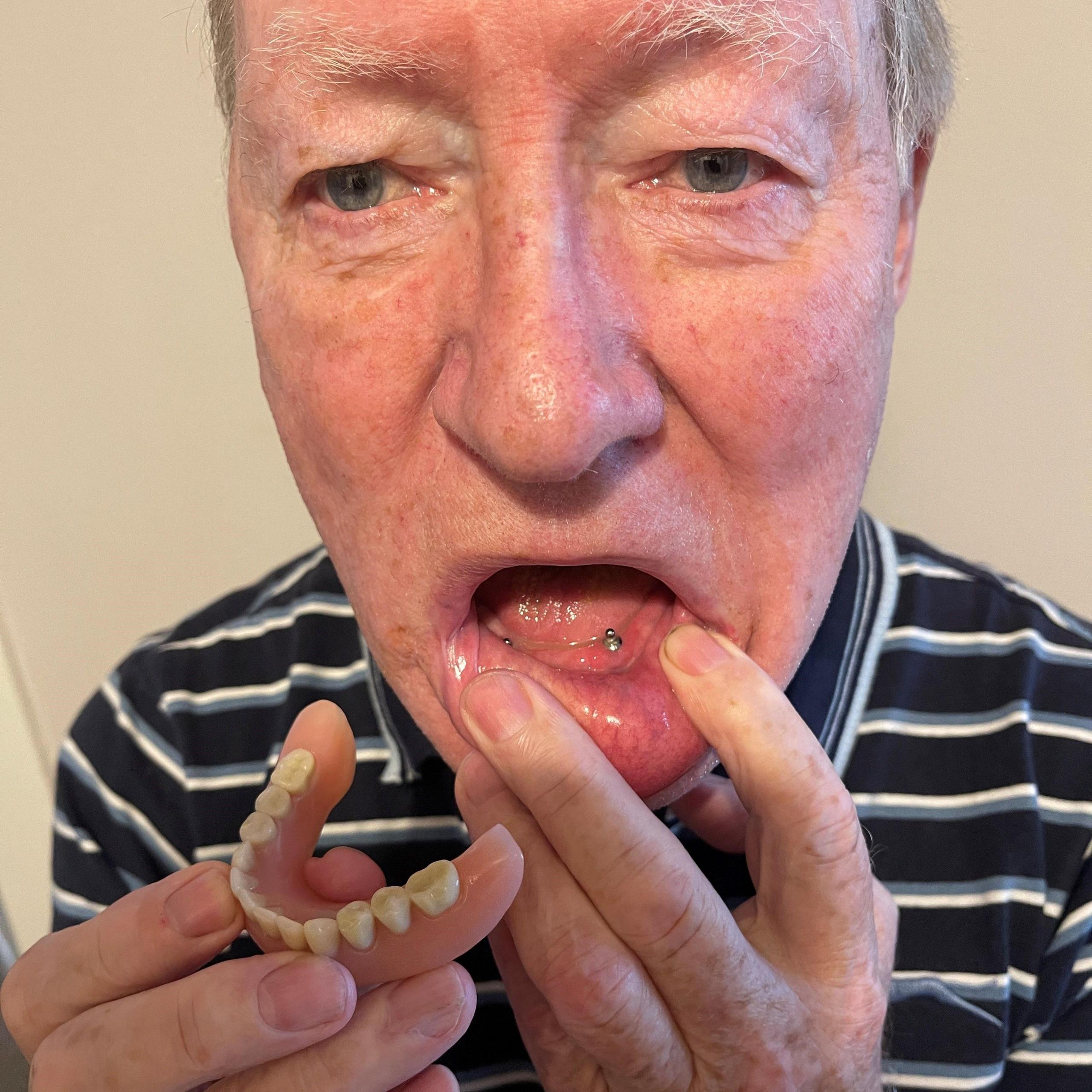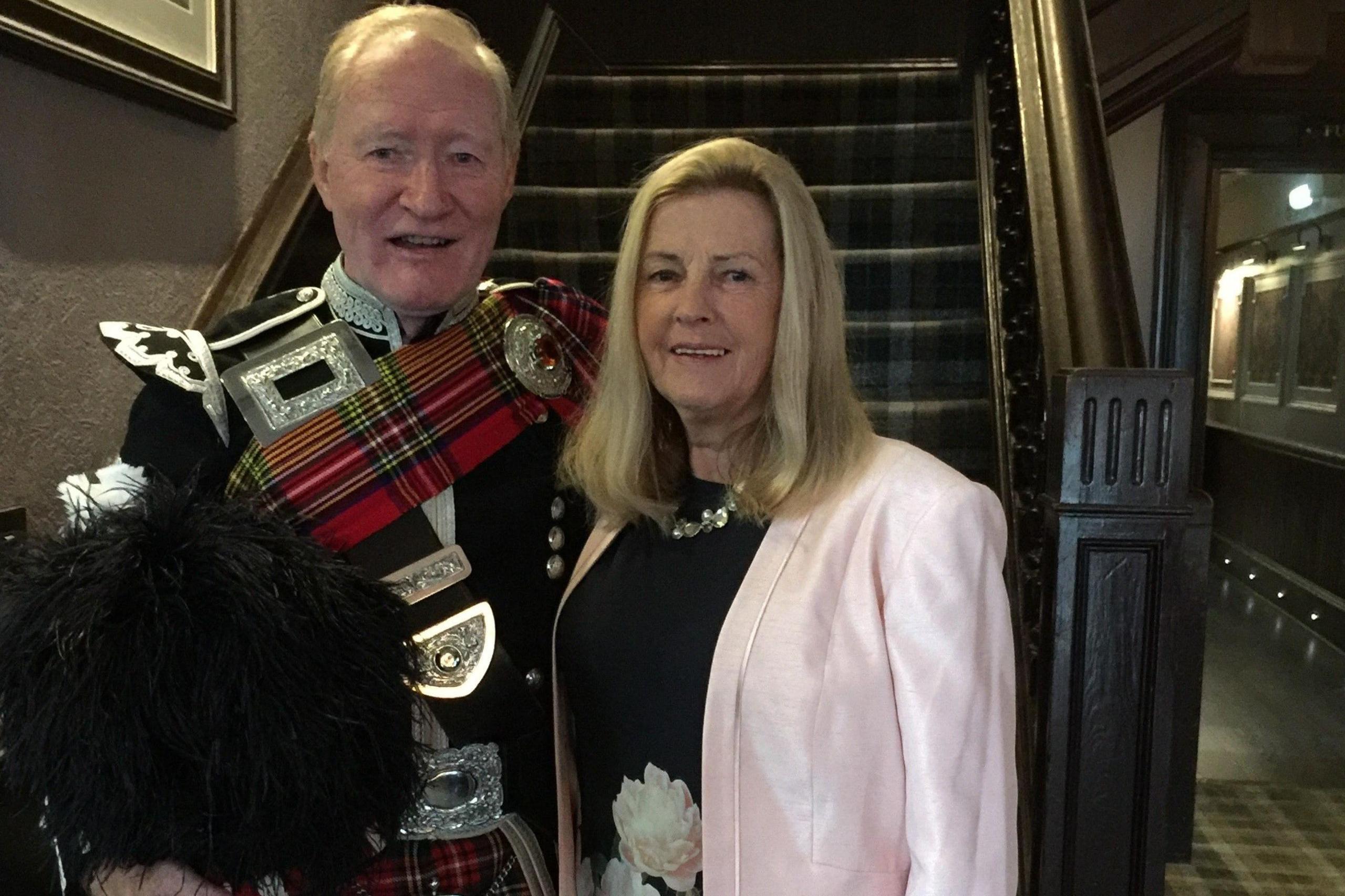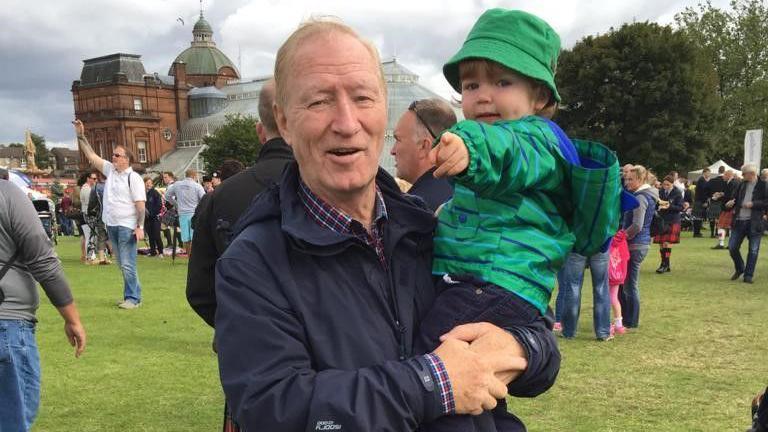I started playing the bagpipes again after having my teeth pulled out

Jim Smith started playing the bagpipes when he was 12
- Published
Jim Smith has played the bagpipes for more than 60 years but when he was told he would have to have all his teeth removed he thought his lifelong obsession was over.
"Bagpipes are what I live for," says Jim, who started learning when he was 12.
The pipe major had been diagnosed with mouth cancer and the surgeon said the only way to operate on his tongue was to remove all 32 teeth.
"I was flabbergasted," says Jim.
"I said, 'please don't', but he said 'we have to get access to operate'."
The 78-year-old said teeth were really important to pipers because without a firm grip on the mouthpiece they can't get the power of their breath into the bag.
So Jim, who lives with his wife Moira in Bellside, near Wishaw, pleaded for a compromise.
He asked doctors to just remove his lower set of teeth.

Two screws hold Jim's denture in place so it doesn't move when he's blowing into his pipes
His surgeon said he would see during the operation if he needed to take out the upper teeth.
"So I went into the operation knowing that all my bottom teeth were going to disappear and that my upper ones might or might not be interfered with," Jim says.
When he woke up after the operation he still had his upper teeth.
Jim had the operation at Monklands Hospital in Lanarkshire in 2015, two weeks after receiving his diagnosis.
During surgery he had the lower half of his tongue and the floor of his mouth removed and replaced with skin from his arm.
"The biggest problem after the operation was the tongue," he says.
"It looked like a sausage roll. It was swollen and my mouth was filled with it."
Jim says he couldn't talk and had to be fed through a tube into his stomach for five months.
"There was also so much trauma going on in my body that I couldn't contemplate eating but it did feel weird not eating for all that time," he says.

Jim plays the bagpipes three times a week
It took two years for his mouth to heal enough for two implant stems to be fitted to hold a bottom denture securely in place.
He tried to begin his return to the pipes by using a practice chanter, which is played like a flute and requires less blowing as it does not have the pipes or drones attached.
But he soon had another setback.
Jim was diagnosed with Stage 2 severe dysplasia on the floor of his mouth and had laser treatment to eliminate it.
"Because I had this dysplasia I have been under constant examination having to go to have my mouth checked out," he says.
Five years on from that and Jim has finally been given the cancer all-clear by doctors.
He said it had been a long journey to be able to play the bagpipes again.
Once he had mastered blowing into a practice chanter - which took months - he started tackling the bagpipes.
He says he went to the gym five times a week to get the strength of breath to power the pipes.
"To have the power to blow, the stamina you need, it's not just the mouth, it's the whole chest and lungs, which had not properly been powered in the years since I had my operation," he says.
The father-of-six still can't chew tough foods such as steak but he is back playing the bagpipes three times a week.
"It's hard to say what it means to me being able to play the pipes again," he says.
"It's the sound of the pipes and enjoying that and the ability to express music, I just love the sound of it. It brings back so many memories.
"I've had a full lifetime since I was 12 years old of the bagpipes. It's part of me."

Jim is embarrassed to tell people he had mouth cancer because he feels they will think he was a smoker and drinker
Jim's cancer was detected when his dentist spotted two small white spots on the floor of his mouth, under his tongue.
"I had no pain, nothing to speak of, and then 'bam, I had a mouth cancer diagnosis'," he says.
"I didn't realise just how devastating the surgery for mouth cancer could be."
Lorrie Cameron, centre head for Maggie's cancer charity, external in Lanarkshire, said: "Our cancer support specialists note that people with head and neck cancers commonly need their teeth removed in order to have effective surgery that removes as much of the cancer as possible.
"Sometimes people receiving chemo will also have teeth removed to reduce infection risk."
Jim says he felt self conscious when telling people he has had mouth cancer.
"A diagnosis of mouth cancer can be embarrassing," he says.
"Because some people immediately think 'well, was he a drinker or a smoker?'
"But although I smoked and drank in my youth, I gave up both habits more than 30 years ago."
Ms Cameron says: "We see every day how men with cancer feel guilt or shame for developing cancer - sometimes because of a sense of responsibility for their families; sometimes because others can make incorrect assumptions about why cancer has developed.
"And we see the real difference it makes to be able to talk through these difficult emotions with professionals and others going through cancer treatment, here at Maggie's."